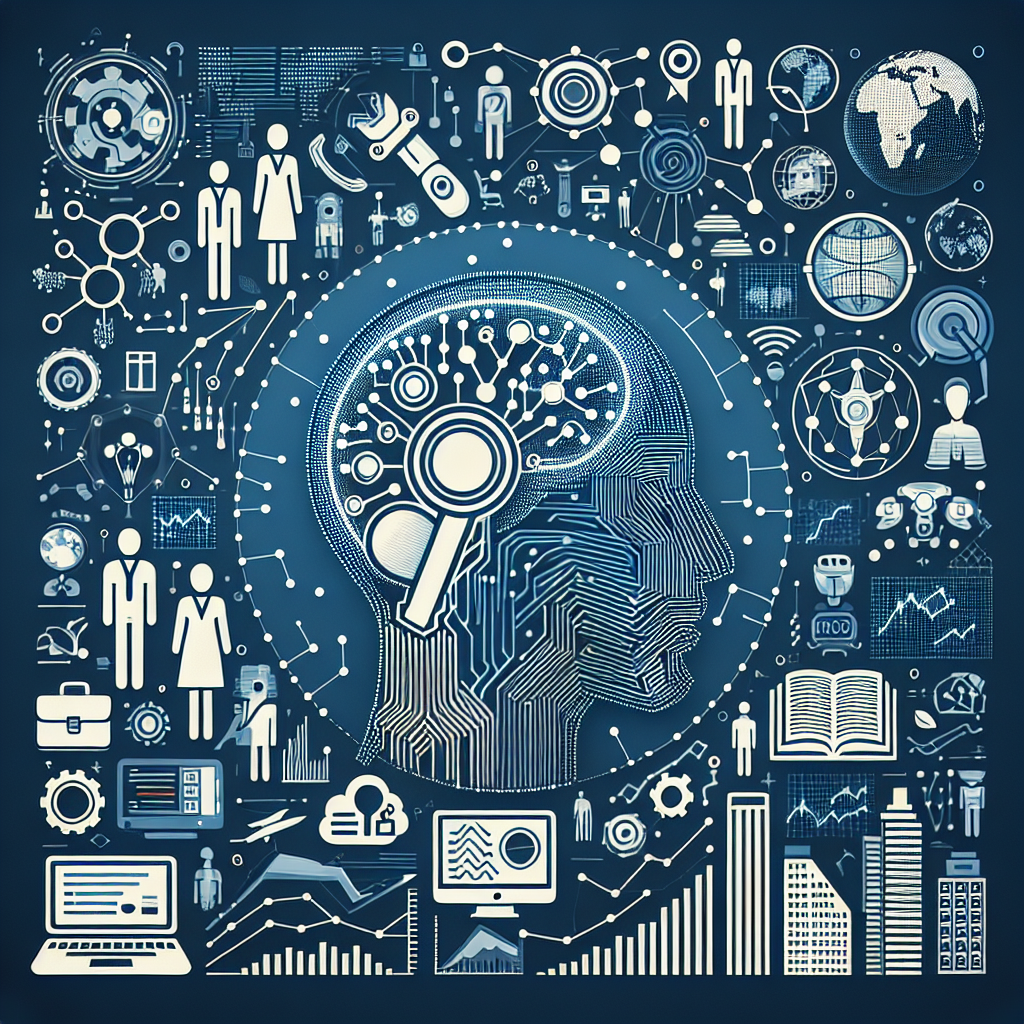Artificial General Intelligence (AGI) has the potential to revolutionize the way we work and interact with technology. As AGI continues to advance, it raises questions about how AI will impact job markets and employment in the future. Will AI lead to job displacement or will it create new opportunities for workers? In this article, we will explore the potential impacts of AGI on the future of work and discuss how individuals and organizations can prepare for the changes ahead.
AGI and the Future of Work
AGI refers to a form of artificial intelligence that has the ability to understand, learn, and apply knowledge in a wide range of tasks. Unlike narrow AI, which is designed to perform specific tasks, AGI has the potential to think and reason like a human. This has significant implications for the future of work, as AGI has the potential to automate a wide range of tasks currently performed by humans.
One of the key impacts of AGI on the future of work is job displacement. As AGI becomes more advanced, it has the potential to automate a wide range of tasks across various industries, leading to job losses in certain sectors. For example, roles that involve repetitive tasks or routine decision-making could be automated by AGI, leading to a decrease in demand for human workers in these roles.
However, the impact of AGI on the job market is not all negative. AGI also has the potential to create new job opportunities in emerging industries and fields. As AGI becomes more advanced, it has the potential to create new roles that require human oversight, creativity, and problem-solving skills. For example, roles that involve training and supervising AGI systems, developing new AI technologies, and providing personalized services to customers could all be in demand in the future.
Overall, the impact of AGI on the future of work will depend on how individuals and organizations adapt to the changes brought about by AI. By understanding the potential impacts of AGI on the job market, individuals and organizations can prepare for the changes ahead and take advantage of the new opportunities that AI will bring.
How Will AI Impact Job Markets and Employment?
AI has the potential to impact job markets and employment in a variety of ways. Here are some of the key ways in which AI could impact the future of work:
1. Job Displacement: As AI becomes more advanced, it has the potential to automate a wide range of tasks currently performed by humans. This could lead to job losses in certain sectors, particularly in roles that involve repetitive tasks or routine decision-making.
2. Job Creation: Despite job displacement, AI also has the potential to create new job opportunities in emerging industries and fields. Roles that require human oversight, creativity, and problem-solving skills could be in demand as AI becomes more advanced.
3. Skills Gap: As AI continues to advance, there is a growing need for workers with skills in AI and related fields. Organizations will need to invest in training and upskilling their workforce to ensure that they have the skills needed to work alongside AI technologies.
4. Remote Work: AI has the potential to enable remote work and flexible working arrangements. As AI technologies improve, workers may be able to work from anywhere and collaborate with colleagues across the globe.
5. Increased Productivity: AI has the potential to increase productivity in the workplace by automating routine tasks and enabling workers to focus on more strategic and creative work. This could lead to higher levels of efficiency and innovation in organizations.
Overall, the impact of AI on job markets and employment will depend on how individuals and organizations adapt to the changes brought about by AI. By investing in training and upskilling, embracing new technologies, and fostering a culture of innovation, individuals and organizations can prepare for the changes ahead and take advantage of the new opportunities that AI will bring.
FAQs
Q: Will AI lead to mass unemployment?
A: While AI has the potential to automate certain tasks and roles, it also has the potential to create new job opportunities in emerging industries and fields. By investing in training and upskilling, individuals and organizations can prepare for the changes ahead and take advantage of the new opportunities that AI will bring.
Q: What skills will be in demand in the age of AI?
A: Skills in AI, machine learning, data analytics, and related fields will be in high demand in the age of AI. Individuals who have these skills will be well-positioned to take advantage of the new job opportunities that AI will bring.
Q: How can organizations prepare for the impact of AI on the job market?
A: Organizations can prepare for the impact of AI on the job market by investing in training and upskilling their workforce, embracing new technologies, and fostering a culture of innovation. By preparing for the changes ahead, organizations can ensure that they are well-positioned to take advantage of the new opportunities that AI will bring.
In conclusion, AGI has the potential to revolutionize the way we work and interact with technology. While AI has the potential to automate certain tasks and roles, it also has the potential to create new job opportunities in emerging industries and fields. By understanding the potential impacts of AGI on the job market, individuals and organizations can prepare for the changes ahead and take advantage of the new opportunities that AI will bring. By investing in training and upskilling, embracing new technologies, and fostering a culture of innovation, individuals and organizations can ensure that they are well-positioned to thrive in the age of AI.

